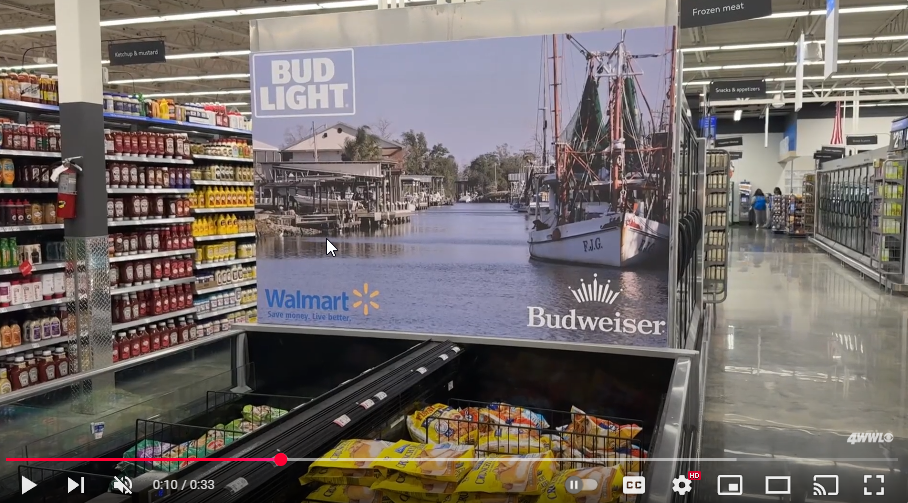Walmart is facing a lawsuit filed by Louisiana shrimper George Barisich, who claims the retail giant used a photo of his shrimp boat without his permission in promotional materials advertising imported shrimp from Indonesia and Ecuador. The lawsuit, filed this week in Saint Bernard Parish, alleges that Walmart’s use of the image is misleading and implies a false endorsement of foreign seafood by a well-known Gulf Coast shrimper.
Barisich, a lifelong commercial fisherman and a prominent voice in Louisiana’s domestic seafood industry, is incensed that a photo of his vessel is being used to sell shrimp that he believes undermines the very industry he’s worked in for decades. The image, reportedly displayed on signage in Walmart stores, features Barisich’s boat alongside ads for low-cost, farm-raised shrimp sourced from overseas—products he neither supports nor supplies.
According to the legal complaint, Barisich accuses Walmart of misappropriating his likeness and reputation to market a product that competes directly with Louisiana’s domestic shrimping industry. The lawsuit argues that the image “falsely indicates to consumers that the advertised products of imported seafood are approved by, sponsored by or affiliated with Plaintiff in some way.” Barisich is seeking damages for unauthorized use of his property and for harm caused to his reputation as a proponent of wild-caught Gulf shrimp.
The case touches a nerve in Louisiana, where shrimping is not only a vital economic sector but a deeply rooted cultural tradition. Local shrimpers have long criticized large-scale retailers for favoring inexpensive imported shrimp over wild-caught American seafood. These imports are often farmed under conditions that domestic shrimpers argue would not meet U.S. environmental or labor standards. Barisich, who has previously testified before Congress about the struggles of the Gulf seafood industry, views this incident as a personal and professional betrayal.
Walmart has not yet publicly responded to the lawsuit, but legal analysts suggest the retail chain may argue that the image was used under a third-party licensing agreement or as part of general marketing stock. However, if Barisich can prove that the photo was indeed of his specific boat and that no authorization was given, Walmart could face significant liability under state law for false advertising and commercial misappropriation.
This legal dispute adds to growing tension between U.S. seafood producers and the retail sector, which increasingly turns to imported products to meet price and supply demands. Domestic shrimpers say they are being priced out of their own markets while facing regulations and fuel costs that overseas producers do not.
Barisich’s lawsuit is likely to gain traction among local industry supporters and may prompt further scrutiny into how retailers source and market their seafood products. Advocates for domestic fisheries argue that clearer labeling and ethical advertising practices are needed to ensure consumers are not misled about the origins of their food.
The outcome of the case could set an important precedent for how imagery is used in retail advertising and what protections individual producers have when their work or likeness is used without permission. For Barisich and many like him, the issue is not just about a single image—it’s about defending the integrity and survival of the Gulf shrimping industry.



